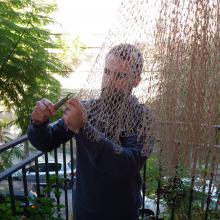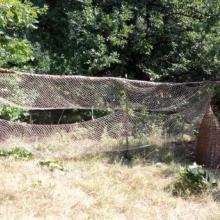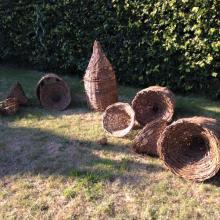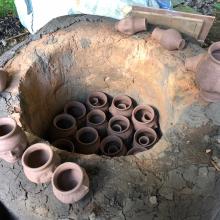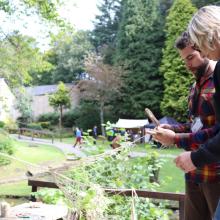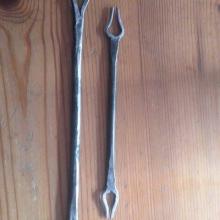
I first started with experimental archaeology over fifteen years ago when working with Dr. David Sim for one year on reconstructed weapons and armour. While working for Oxford Archaeology as an AS and subsequently an Environmental Archaeologist, I joined the Oxford Palaeolithic Technology Society to continue experimental research, this time with fishing technology. In doing so, I produced a net that was used for a reality-documentary titled 10,000BC.
I have a PhD from the University of Reading on Romano-British fisheries. My research has produced preliminary catalogues of lead weights, fishing hooks and netting needles, as well as an updated register of fish bone remains. In doing so, I started looking into experimental archaeology to assist with ethnographic studies of traditional fishing practices. This has led to a forthcoming publication on testing weight ranges of lead weights on reproduced casting nets.
I am currently working as an assistant field director with the universities of Cornell and Bologna (previously Reading University) at a garden site in Pompeii, Italy. I am also assessing the fish bone remains for that site.
In 2018 I organised a workshop on Roman experimental archaeology with Dr Matthew Mandich and TRAC, which took place at Vindolanda (UK). The proceedings of which are published on EXARC.net
Our workshop followed a TRAC session at Edinburgh in the same year, organised by Dr. Tatiana Ivleva. Both sessions have since developed into a large publication which is currently being completed and which will provide an overview of experimental methodologies, challenges and applications in Romanist studies. This publication is due in late 2023:
The Bloomsbury Handbook of Experimental Approaches to Roman Archaeology. Edited by Lee Graña, Tatiana Ivleva and Bill Griffiths.

